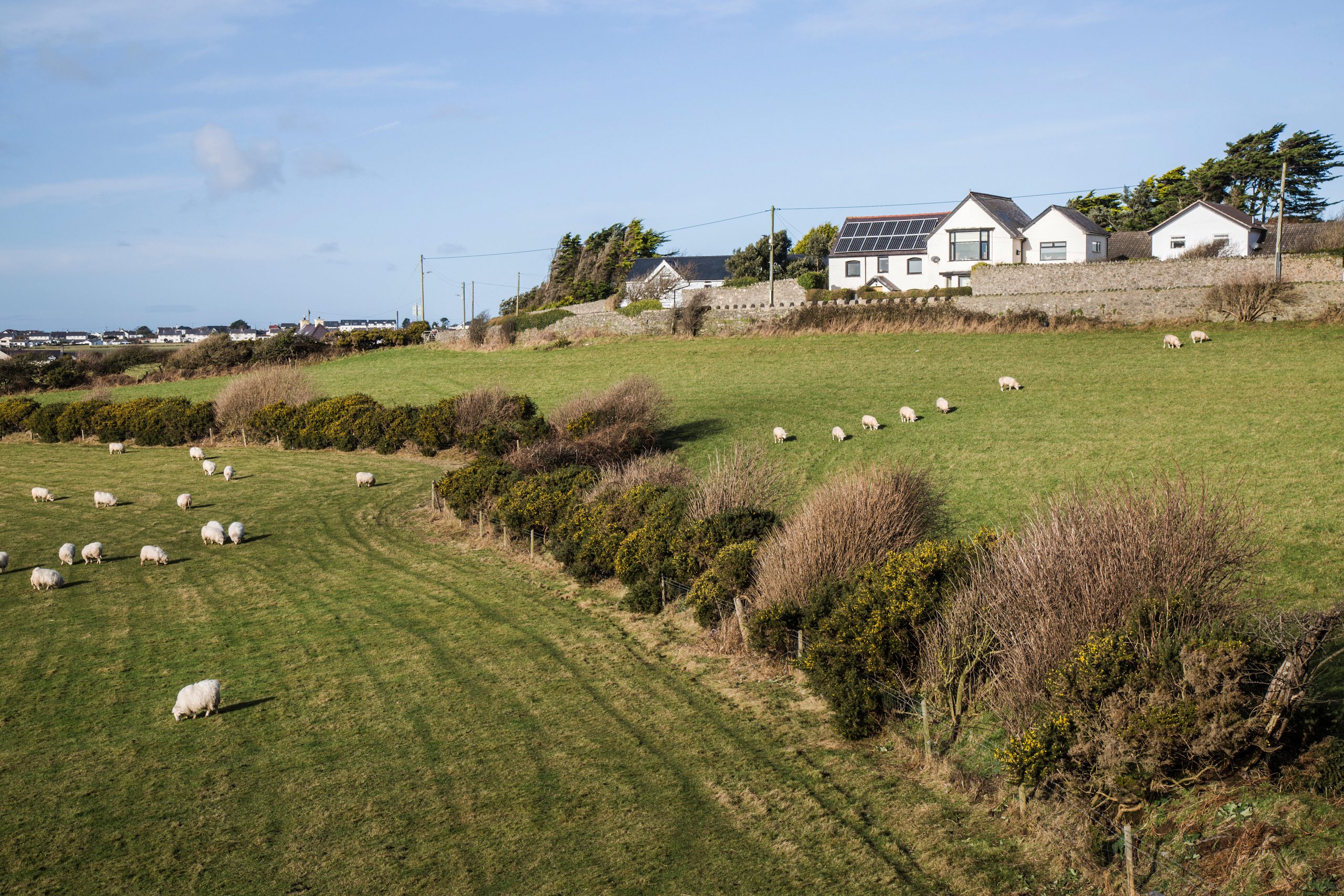Can we make our houses Green? The huge battle we face to make our properties fit for a carbon-neutral world
Decarbonising the UK housing stock is one of the biggest challenges the country faces. Carla Passino investigates.


Exquisite houses, the beauty of Nature, and how to get the most from your life, straight to your inbox.
You are now subscribed
Your newsletter sign-up was successful
With the built environment currently generating about 40% of the UK’s carbon footprint, making housing more sustainable is an urgent issue, but one that’s proving tricky to tackle.
‘I don’t think it’s an overstatement to say that decarbonising the UK housing stock is one of the largest challenges the country faces,’ Sophie Chick of Savills noted at a late April webinar on property and carbon.
Although efforts to reduce the environmental impact of new builds are progressing apace, existing stock is harder to improve.
Emissions could be halved through renovations that accelerate the move away from fossil fuels towards renewable sources while boosting energy efficiency and, at the end of March, the Government announced £300 million extra funding to help low-income households insulate their homes.
However, notes David Goatman at Knight Frank, previous initiatives in a similar vein have not been hugely successful: ‘The big flagship policy under the first coalition government was the Green Deal, but it didn’t really have the desired impact because it was a ‘pay as you save’ kind of programme and people were quite reluctant to sign up to what felt like almost a debt or credit product in order to pay for the [Greening] measures.
'The recent Green Homes Grant [through which the government provided up to £5,000 towards the cost of Green improvements] seems to have been fairly short-lived. I get the feeling that the Government knows [housing] is a very big chunk of our current emission, but is not entirely sure what the right policies are to incentivise people to make changes.’
Matters are further complicated when it comes to period country houses, where retrofitting needs to be sensitively done to preserve a building’s historic and architectural integrity, as Jane Wakiwaka sustainability manager at the Crown Estate, pointed out during the Savills webinar.
Exquisite houses, the beauty of Nature, and how to get the most from your life, straight to your inbox.
"There currently is no correlation between EPC ratings and the average number of days it takes for a property to sell"
Many heritage homes also are exempt from the Energy Performance Certificate requirement, so, explains Mr Goatman, ‘knowing where you are starting from and you can realistically get to is more difficult’.
Compounding the problem is the fact that, at the moment, sustainability does not add significant value to a residential property.
A Savills survey found that energy-efficient homes attract a premium — their analysis of EPC records shows a 17% difference in value between similar housing in band B and band F — but this is still trumped by factors such as location, property type and affordability.
Similarly, research on sale times carried out by Knight Frank shows that there currently is no correlation between EPC ratings and the average number of days it takes for a property to sell.
In the lettings market, landlords may have more of an incentive because, as Annabel King of Knight Frank notes, ‘Minimum Energy Efficiency Standards (MEES) apply and it is currently illegal to let where the rating is below E’.
But with the vast majority of homes in the UK being owner-occupied, even the potential risk of not being able to let an energy-inefficient property in the future is not enough to induce most people to undertake expensive renovation work.
"There’s a strong case for reinstating some sort of subsidy to support smaller-scale renewables"
The upcoming ban on gas-boiler sales from 2025 will be a push in the sustainability direction but currently, notes Mr Goatman, ‘people have an understandable uncertainty about what kind of solution they should be going for and how it should be funded, what kind of support there is and how intrusive the works are. All those factors mean that, until now, residential property has been very hard to treat'.
He believes that ‘there has to be the carrot, as opposed to the stick. Grants need to be much more significant — you can’t do very much with £5,000 — and there’s a strong case for reinstating some sort of subsidy to support smaller-scale renewables: particularly where there is land around a property, a small-scale, sensitively located solar installation is a very efficient way of getting renewable power.’
Another option, he concludes, is for the Government to add a lever that whets appetite for sustainable homes by either rewarding energy-efficient buildings or penalising inefficient ones: ‘Whether that be through a council tax discount or different bands, that could potentially be another tool the Government can use to drive behaviour change.’
Carla must be the only Italian that finds the English weather more congenial than her native country’s sunshine. An antique herself, she became Country Life’s Arts & Antiques editor in 2023 having previously covered, as a freelance journalist, heritage, conservation, history and property stories, for which she won a couple of awards. Her musical taste has never evolved past Puccini and she spends most of her time immersed in any century before the 20th.

